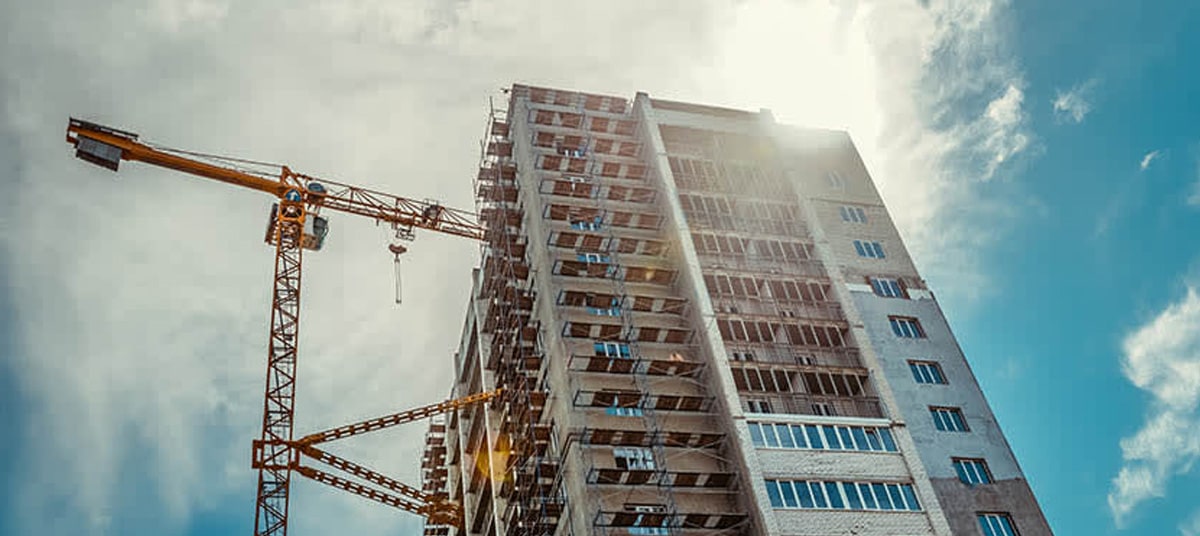
The total number of dwelling approvals rose 10.4 per cent in July, largely driven by an increase in approvals for high-density apartments.
Dwelling approvals hit a 14-month high in July, according to new figures from the Australian Bureau of Statistics (ABS).
The latest Building Approvals data from the ABS has shown that the pipeline of new building is growing, after approvals hit their highest level since May 2023, largely as a result of high-density housing.
Over the month of July, there were 14,797 building approvals, marking an increase of 10.4 per cent on June figures (in seasonally adjusted terms) and 14.3 per cent on July 2023.
Daniel Rossi, ABS head of construction statistics, said that high-density housing (typically a fairly volatile segment) had led the way for the monthly rise in approvals, at 5,234.
However, the sharp rise in private dwellings excluding houses followed a 20.2 per cent fall in June 2024.
Rossi said: “Private dwellings excluding houses rose 32.1 per cent after a low June result.
“Private sector house approvals also rose by 0.6 per cent,” growing to 9,252. This is 13.1 per cent higher than in July 2023.
Approvals for houses have hovered around 9,000 a month for the past seven months.
Qld seeing falls in approvals
Queensland was the only state to see dwelling approvals drop in July (down 5.0 per cent) in seasonally adjusted terms.
Approvals for total dwellings rose in NSW (25.2 per cent), Victoria (20.1 per cent), South Australia (9.9 per cent), Tasmania (8.0 per cent), and Western Australia (1.9 per cent).
Private sector houses grew in most states, except for Queensland (-5.2 per cent) and Victoria (-1.7 per cent). Housing approvals were driven by an 8.5 per cent rise in NSW in July.
The value of total building also rose over the month, growing 6.8 per cent after the 6.2 per cent fall in June, to $13.18 billion.
Residential building values rose 9 per cent to $8.49 billion, with new residential building values increasing 11.8 per cent (while alterations and additions fell 6.8 per cent in value).
The value of non-residential building rose 3.2 per cent, after a 15.1 per cent decrease in June.
Despite the bounce in July, Rossi said that total dwellings approved remain 5.1 per cent lower than the five-year average.
Reacting to the figures, the CEO of Master Builders Australia said that more work is needed if Australia is to reach its 1.2 million housing target.
CEO Denita Wawn said: “July marked the very first month of the new National Housing Accord, which seeks to deliver 1.2 million new homes by June 2029.
“[These] figures show that we have started the Accord on the front foot. However, it will still be a huge challenge for us to deliver the Accord’s target.
“Over the past five years, just 940,000 new homes were approved across Australia. More ominous is the fact that 166,140 new home-building approvals were received over the year to July.
“If we remain at this pace, we’re looking at creating about 831,000 new homes over the next five years.
“We cannot take the foot off the pedal when it comes to boosting housing supply and improving the investment environment for new projects.
“Workforce shortages, woeful industry productivity, a lack of critical infrastructure, high taxes and charges, slow approval process, and costly union Enterprise Bargaining Agreements all inhibit the building and construction industry’s capacity to get on with the job.”
Speaking to The Adviser last month, the shadow housing minister Andrew Bragg lampooned the government’s 1.2 million housing target as ‘a joke’ given the current shortfall and said it was important to be “encouraging the states” to achieve federal government policy “or maybe even finding a way to punish the states if they don’t comply”.
He said that the Liberal Party will “have a supply policy before the election” that will be “much stronger” than the Albanese government’s current policies. Further details are expected to be announced in the near future.
You can listen to the full interview with senator Andrew Bragg on the home ownership issue and why he most wants to hear from brokers here:
[Related: Government’s 1.2m housing target ‘a joke’, says Bragg]

